Pirates Outlaws is back with Heritage, a new chapter that aims to improve every single aspect of the 2019 original game.
Pirates Outlaws 2: Heritage will enter Early Access, marking the return of Fabled Game’s swashbuckling roguelite deckbuilder with a more flexible structure, deeper synergies, and a stronger sense of long-term progression.
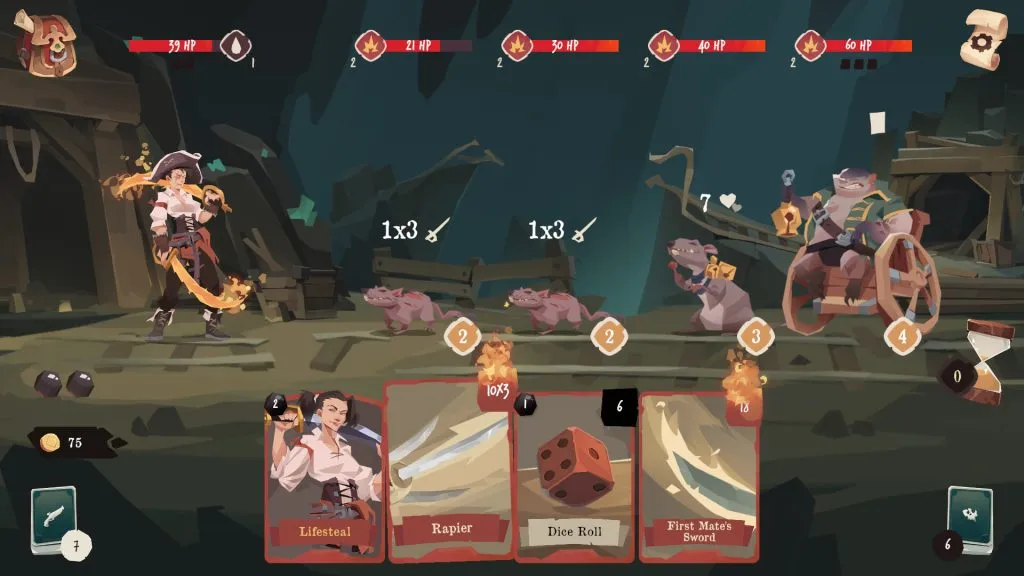
Built as a full sequel to the 2019 original, Heritage keeps the core loop of tense, turn-based card combat and route planning, but layers it with class combinations, companions, and a new card evolution system that pushes players to experiment rather than lean on a single solved build.
**PC leads the way w…
Pirates Outlaws is back with Heritage, a new chapter that aims to improve every single aspect of the 2019 original game.
Pirates Outlaws 2: Heritage will enter Early Access, marking the return of Fabled Game’s swashbuckling roguelite deckbuilder with a more flexible structure, deeper synergies, and a stronger sense of long-term progression.

Built as a full sequel to the 2019 original, Heritage keeps the core loop of tense, turn-based card combat and route planning, but layers it with class combinations, companions, and a new card evolution system that pushes players to experiment rather than lean on a single solved build.
PC leads the way with the Early Access launch on Steam, while versions for iOS, Android, and Epic Games Store are scheduled to arrive later in December, giving both desktop and mobile players an early shot at charting its new seas.
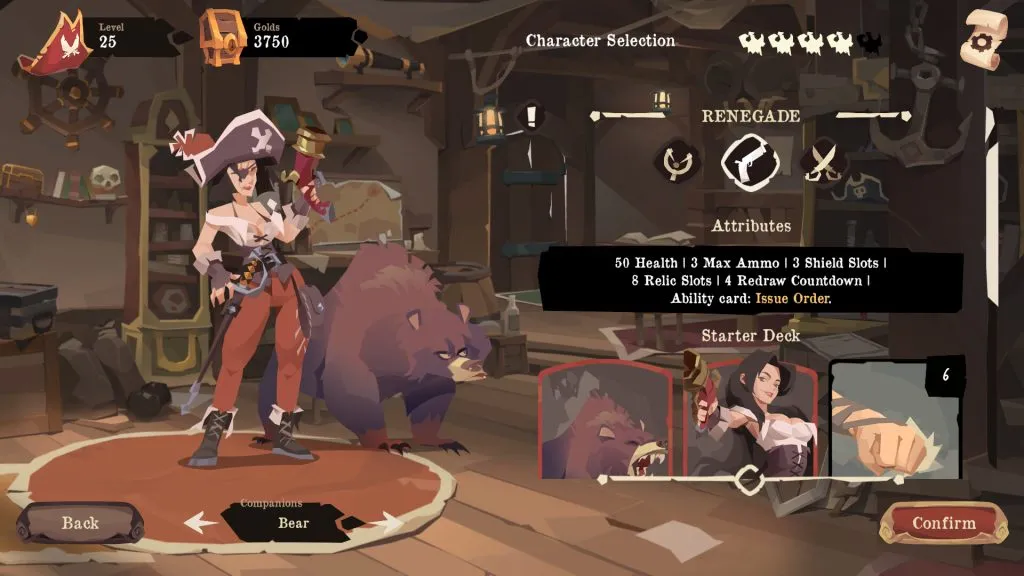
From day one of Early Access, Pirates Outlaws 2: Heritage offers a substantial toolkit. Players can build decks from a pool of around 250 cards and 90 relics, split across three playable heroes and seven classes, plus four animal companions that slot directly into starter decks.
Each hero comes with unique ability cards and predefined class decks that define an initial game plan, while the Alchemy shop lets players rewrite those assumptions mid-run by drinking elixirs that modify abilities, starter setups, and even visual appearance.
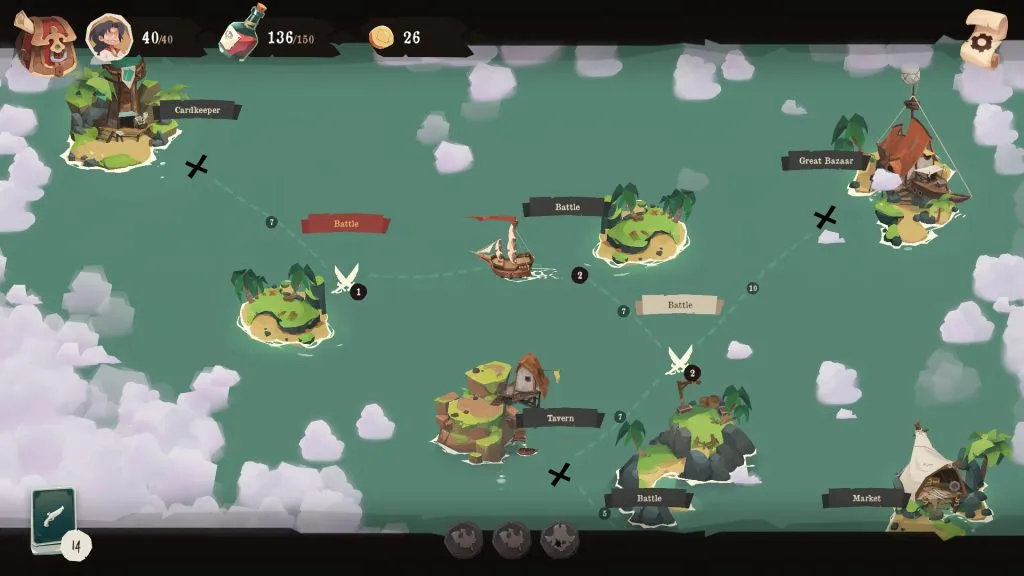
Companions add another layer, bringing their own cards into the mix and enabling hybrid archetypes built around shared triggers, status setups, or economy engines that go beyond the straightforward ammo and armor management of the first game.
Runs now start from New Elysia, the player’s mansion hub, which acts as a thematic and mechanical anchor. From there, captains set sail into Pirates Bay, the first available region in Early Access, navigating between islands, taverns, events, and markets with more freedom than the straight-shot paths common in many roguelite deckbuilders.
Instead of being locked to a single forward route, players can revisit locations, adjust their course, and better plan recovery stops, making route decisions part of the strategy.
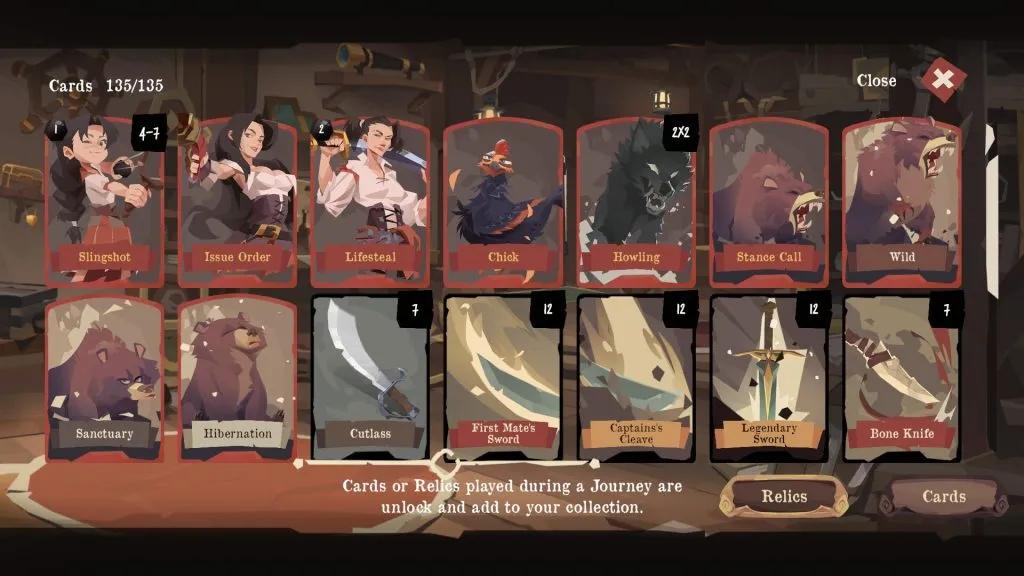
The region is guarded by nine Sea Masters and other powerful foes, including giant creatures that echo the multi-phase, pattern-driven boss structure that helped define the original game.
Combat aims to stay fast and readable while adding nuance. Heritage introduces a countdown-based enemy behavior system where each card played advances a visible timer toward opposing actions.
The new card evolution tree further sharpens long-term decision-making. Collecting three copies of the same card fuses them into an upgraded version, but evolution paths are not fixed.
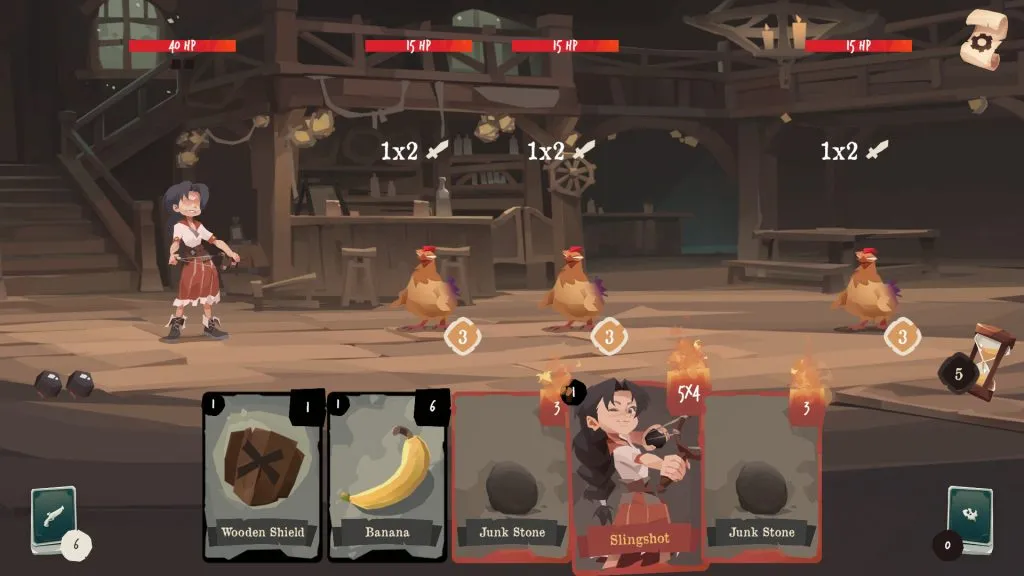
Players choose how a card grows, skewing it toward economy, scaling damage, utility, or synergy with specific heroes and companions. Relics tie into this through outfit sets: completing an outfit grants an additional bonus, nudging players to weigh short-term boosts against the payoff of assembling full sets that can redefine how a build functions in the late game.
Outside the main expeditions, the Arena mode returns as a focused challenge space, offering curated battles designed to stress-test builds and reward precise play.
Pirates Outlaws 2: Heritage is launching in early access on PC via Steam on December 4, 2025, and in the meantime, I suggest giving the demo a try. Below is the new trailer.